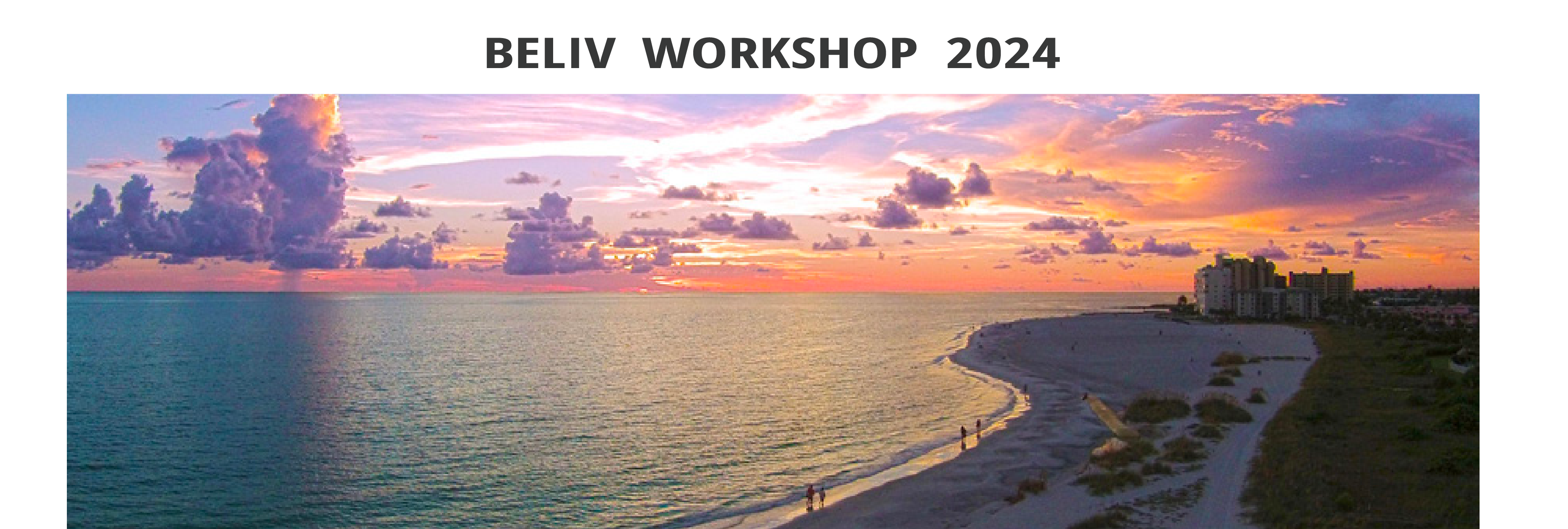



We invite contributions to BELIV 2024, the international forum to broadly discuss research methods in visualization. Our discussions span from novel and not-yet fully established design and evaluation methods for visualization tools and techniques, to methods that more generally establish the validity and scope of acquired visualization knowledge. BELIV supports contributions and discussions from the rich spectrum of visualization researcher.
This year: Complementary to the broad scope of BELIV and its general commitment to research methods, BELIV 2024 will include a timely focus topic: Rethinking Design, Evaluation, and Ethics in Visualization in the Era of Generative AI.
In the past two years (since the last iteration of BELIV), generative AI has become widely accessible, capturing the imaginations of broad groups from researchers, educators, and industry to everyday citizens. At the same time, generative AI promises to change the way that data visualizations are created, modeled, and evaluated. We find ourselves in a liminal space, not yet at the often-heralded future where generative AI is pervasive; we are at the dawn of the transition. It is against this background that we are at a critical juncture to shape how the visualization community will adopt and integrate generative AI into our everyday practices. How should and will visualization research evolve in response to generative AI?
Sample Topics:
BELIV 2024 also seeks papers on the broader topic of research methods in visualization, which include, but are not limited to:
Innovative Approaches to Visualization Evaluation
Reflective Practices and Insights on Visualization
Foundations of Visualization
Communicating and Reviewing Visualization Research
Visualization Evaluation & Design in Challenging Settings
The workshop focuses on contributions from all areas of visualization, including VAST, InfoVis, and SciVis.
We accept 3 types of submissions—
Research papers aim to make progress toward novel research methods in visualization and to discuss their benefits and limitations compared to traditional methodologies. As in past editions of BELIV, we will not accept papers that merely report on the use of a method or methodology unless the focus of the contribution is on lessons learned about applying a novel method and new insights on the method itself are presented. Research papers present new work and unpublished results on the topic areas of the workshop, including the focus topic. Research papers will be selected according to their novelty, quality, and relevance.
Position papers are problem discussions or statements describing the author's relevant experience and ideas in regards to methods and methodologies for visualization research, and in particular the focus topic of the workshop. Position papers will be selected according to their importance and relevance for the workshop topics, and how well they will fit the planned discussions.
Survey papers are intended to provide up-to-date and comprehensive surveys on topics relevant to methods and methodologies for visualization research. We welcome submissions that introduce emerging methodological approaches, as well as proposals on traditional research methods. We also welcome contributions from related disciplines and other application areas, including, but not limited to human-computer interaction, design, psychology, statistics, social science, computational sciences, etc. All survey papers, however, must make a clear case for their (potential) relevance to visualization.
Papers can include up to eight pages of content with additional pages for references only. Both full-length and shorter papers are welcome. The length of the submission should be commensurate with the contribution.
All submissions should be formatted in the VGTC conference paper style. Suitable templates, in LaTeX and Word, can be downloaded from: https://tc.computer.org/vgtc/publications/conference/. The submission, however, must be made in PDF format. Authors can decide whether they want to reveal their names on the submission (single-blind) or submit it anonymously (double-blind).
To submit a paper, create an account and submit the paper to the submission system at: https://new.precisionconference.com/user/login. Please clarify whether you are submitting a position, research, or survey paper.
We plan to publish accepted papers in the IEEE digital library, including the assignment of DOIs to individual papers.